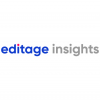Increased sale of baby formula in China and Southeast Asia concerning

Researchers from The Australian National University (ANU) found that there is an exponential increase in the sale of infant and baby formula, which is concerning because of the impact it can have on the health of babies. Baby formula has been linked to poorer health and developmental outcomes among children, with increased risks of pneumonia, diarrhea, obesity and type-2 diabetes, ear infections, and asthma. Breastfed children have better immunity and growth milestones in comparison. In particular, the demand for baby formula in China and Southeast Asia is booming since more women are entering workforce. According to the report, the sale of baby formula has grown by 41% from 5.5 kilograms to 7.8 kilograms per child between 2008 and 2013, and is likely to increase to 10.8 kilograms by 2018. Aggressive marketing of the products by companies producing baby formula is being considered as the primary factor shaping parents’ choice to opt for baby formula over breastfeeding. The researchers hope that their study would spark discussions around stricter regulations in the marketing of these products and more awareness among parents. ???
Read more in Science Daily.



